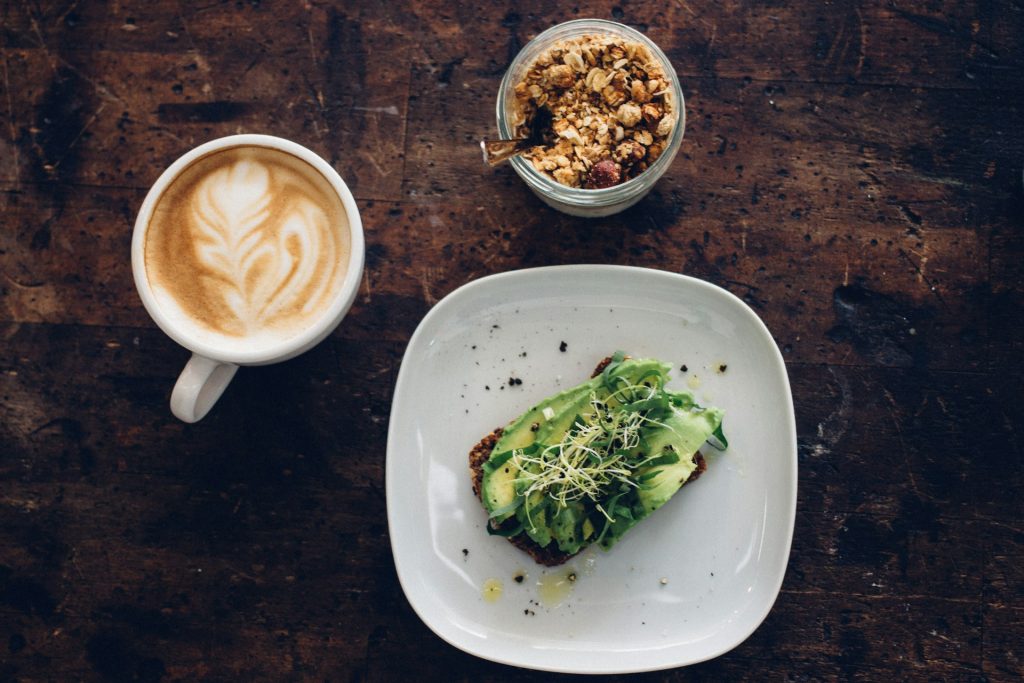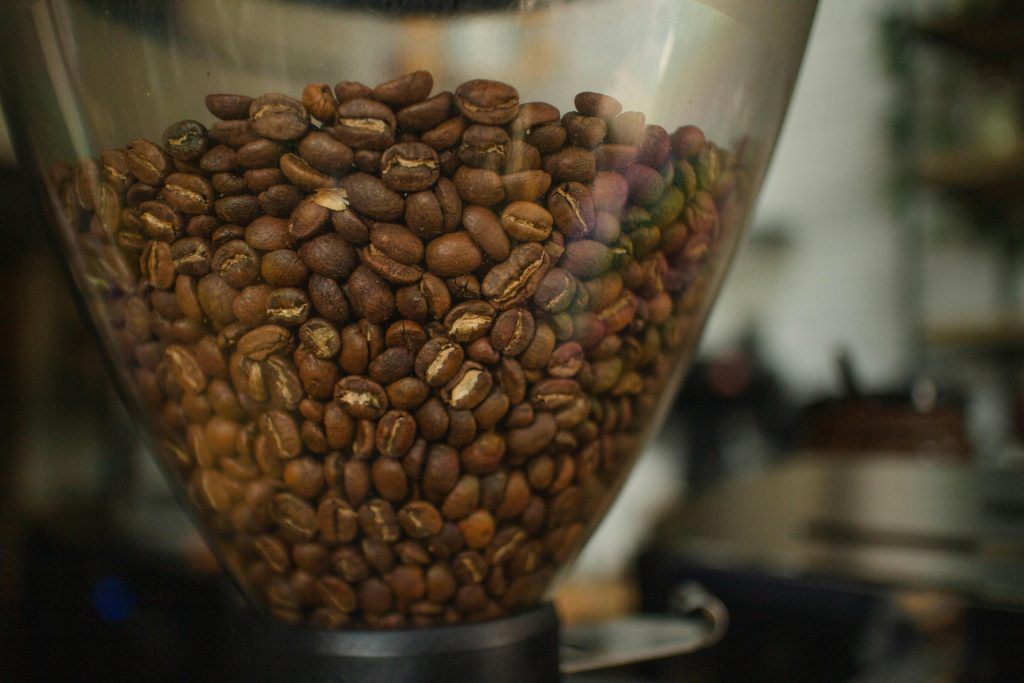Table of Contents
Did you know your morning coffee could be doing more harm than good? New research shows that simple tweaks to your coffee routine can transform it from a guilty pleasure into a health-boosting super drink.

The Hidden Dangers in Your Cup
That store-bought creamer might be sabotaging your health goals without you even knowing it. Most commercial coffee additions contain more artificial ingredients than actual cream. The average coffee drinker consumes an extra 200-300 calories daily through coffee additions alone. Even worse, artificial sweeteners and processed creamers can trigger inflammation and digestive issues.
Nature’s Sweeteners: The Smart Switch
Artificial sweeteners might seem like a healthy choice, but they’re worse for your body than regular sugar. Natural alternatives not only taste better but also add health benefits:
Raw honey contains enzymes and antioxidants that support immune function. Just a teaspoon adds subtle sweetness while delivering antibacterial properties. Monk fruit extract provides zero-calorie sweetness without the artificial aftertaste of conventional sweeteners. A pinch of Ceylon cinnamon naturally enhances coffee’s sweetness while helping regulate blood sugar levels.
The Creamer Revolution
Traditional dairy creamers often contain hydrogenated oils, corn syrup, and carrageenan – ingredients linked to inflammation and digestive problems. Upgrade your coffee with these nutrient-rich alternatives:
Oat milk adds a creamy texture plus beneficial fiber and beta-glucans for heart health. Coconut milk provides medium-chain triglycerides (MCTs) that support brain function and metabolism. Almond milk offers vitamin E and calcium while keeping calories low. Cashew milk creates a rich, creamy texture while adding minerals like zinc and magnesium.
Supercharge Your Morning Brew
Transform your regular coffee into a nutritional powerhouse with these evidence-backed additions:
Collagen peptides dissolve completely and support skin, joint, and gut health. MCT oil provides clean, sustained energy without the crash. Raw cacao adds antioxidants and magnesium while naturally sweetening. Lion’s mane mushroom powder enhances focus and cognitive function. Cordyceps mushroom powder supports energy and athletic performance.
Brewing Methods Matter
Your brewing method affects more than just taste – it impacts your coffee’s health benefits too. French press and metal filter methods preserve beneficial oils and compounds that paper filters remove. Cold brew reduces acid content by up to 67%, making it easier on your stomach and teeth.

The Quality Question: Why Organic Matters
Conventional coffee ranks among the most heavily sprayed crops worldwide. Organic beans eliminate exposure to harmful pesticides while preserving beneficial compounds. Single-origin beans from high-altitude regions contain more antioxidants and fewer mycotoxins (harmful mold compounds).
Temperature: The Forgotten Factor
Brewing temperature significantly affects your coffee’s health profile. Water that’s too hot (above 205°F) destroys beneficial compounds and increases acidity. The sweet spot lies between 195-205°F, preserving antioxidants while extracting optimal flavor.

Timing for Maximum Benefits
When you drink your coffee matters as much as what’s in it. Having coffee on an empty stomach increases acid production and stress hormones. Wait 30 minutes after breakfast for optimal absorption of coffee’s beneficial compounds. This timing also helps prevent the jitters and afternoon crash.
Hidden Health Boosters
These unexpected additions transform your coffee into a functional beverage:
Ceylon cinnamon regulates blood sugar and adds natural sweetness Cardamom aids digestion and reduces coffee’s acidity Nutmeg provides anti-inflammatory benefits Vanilla bean powder adds antioxidants and natural sweetness Pink Himalayan salt reduces bitterness and adds minerals.
Water Quality: The Foundation of Healthy Coffee
Your coffee is 98% water, yet most people overlook this crucial ingredient. Filtered water free from chlorine and heavy metals doesn’t just improve taste – it allows better absorption of coffee’s beneficial compounds. Consider investing in a high-quality water filter for your coffee routine.
Storage Secrets for Maximum Nutrients
Improper storage degrades coffee’s beneficial compounds. Store beans in an airtight container away from light, heat, and moisture. Never refrigerate whole beans – this creates condensation that promotes mold growth. Buy smaller amounts more frequently instead of bulk-storing.
The Mold Factor
Many commercial coffees contain harmful mycotoxins that can trigger inflammation and fatigue. Choose brands that test for mold or buy single-origin beans from high-altitude regions. Light to medium roasts typically contain fewer mycotoxins than dark roasts.
Your Daily Health Ritual: Simple Swaps
Start upgrading your coffee routine with these easy changes:
- Replace refined sugar with natural sweeteners
- Switch to organic, single-origin beans
- Use filtered water at optimal temperature
- Add beneficial spices like cinnamon or cardamom
- Choose quality plant-based creamers
- Store beans properly
- Consider cold brew for less acidity
Advanced Health Hacks
Once you’ve mastered the basics, try these pro-level upgrades:
- Rotate different mushroom powders for varied benefits
- Experiment with herbal additions like turmeric or ginger
- Try coffee oil pulling for dental health
- Use coffee as a pre-workout with added MCT oil
- Create seasonal blends with different health-boosting spices
The Seasonal Strategy
Your coffee needs change with the seasons, and smart adjustments can maximize health benefits year-round. In summer, cold brew with added electrolytes supports hydration. Winter calls for warming spices like clove and nutmeg that boost immunity. Spring and fall are perfect for experimenting with adaptogenic herbs that help your body manage seasonal transitions.
The Gut Health Connection
Few people realize that coffee can either support or disrupt gut health, depending on how you prepare it. Adding a probiotic-rich splash of kefir or coconut yogurt not only creates incredible creaminess but also supports digestive health. For those with sensitive stomachs, a sprinkle of ginger powder or a drop of digestive bitters can make coffee more gut-friendly.

Time-Based Benefits
Different coffee preparations offer unique benefits throughout the day:
- Morning: Focus on protein additions like collagen
- Pre-workout: Emphasize MCT oil and B vitamins
- Afternoon: Choose lighter options with adaptogens
- Evening decaf: Add calming herbs like chamomile or lavender
The Social Factor
Making healthy coffee choices doesn’t mean sacrificing your social coffee routine. At cafes, request these simple modifications:
- Ask for unsweetened plant milk
- Request cinnamon instead of syrup
- Choose coconut sugar over refined sugar
- Ask about their organic bean options
Creating Your Signature Healthy Blend
Experiment with creating your own signature healthy coffee blend. Start with a base of high-quality organic beans, then add 2-3 complementary superfoods that match your health goals. Document what works best for your body and energy levels.

Your Healthier Coffee Journey
Your daily coffee ritual can be more than just a caffeine fix – it can be a cornerstone of your wellness routine. Start with one healthy swap tomorrow, then gradually build your perfect, health-boosting cup. Small changes now lead to significant benefits over time. Remember: The perfect healthy coffee recipe is the one that makes you feel your best. Don’t be afraid to experiment and adjust until you find your ideal combination.

I’m Audrey, a dedicated mother of teenagers with an insatiable love for coffee. On BeanBrewLove.com, I intertwine my need for caffeine with reflections on life. Whether expressing a nostalgic sentiment or injecting a hint of sarcasm, my blog is a reservoir of coffee culture, brewing techniques, and global coffee reviews.




